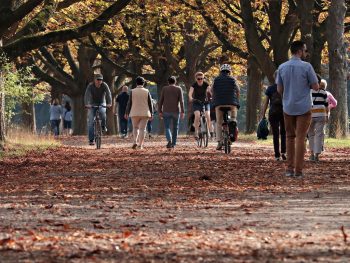Soaring fuel costs drive motorists to greener forms of transport
Further surges in fuel costs are having an unexpected positive impact on promoting greener forms of transport.

One in three (33%) drivers have decided to walk more on the back of increased motoring costs
New research from IAM RoadSmart finds one in three (33%) drivers have decided to walk more on the back of increased motoring costs, while 17% said they use public transport on a more regular basis.
The analysis of more than a thousand motorists also found 7% have bought a bicycle or are using an existing bike more frequently.
Neil Greig, director of policy and research at IAM RoadSmart, commented: “As fuel prices rise again, it is yet another added expenditure for households up and down the country amid the deepening cost-of-living crisis.
“However, our research demonstrates that there has been an unexpected ‘green lining’ to the rising cost of fuel, as an increasing number of motorists opt for more environmentally friendly forms of transport.”
But Greig also advised that the increase in pedestrians on Britain’s busy shared streets will change the dynamics on the roads.
“It is crucial to be mindful of the safety of all road users, especially those who will be more vulnerable to injury in the case of a collision.
“Adhering to the ‘hierarchy of road users’ Highway Code rule, which dictates that road users such as cyclists and pedestrians are at greater risk from road traffic, and therefore motorists should possess the greatest responsibility to minimise harm, will play a critical role in helping Britain adapt to these changes.”
Meanwhile, those who have decided not to ditch the car entirely – or can’t do so due to work – have also made greener changes to the way they drive. A total of 38% of respondents stated that they have tried to drive more economically, and 19% disclosed that they have taken extra care to stick to the speed limits.
Greig added: “For many, ‘hanging up the keys’ is simply not an option, and the role of owning a car, in terms of personal mobility and keeping Britain moving, cannot be understated. In such cases, we would encourage motorists to follow those who have decided to drive more economically and reduce their speed, which will not only help keep costs down, but also keep Britain’s roads as safe as they can be.”













